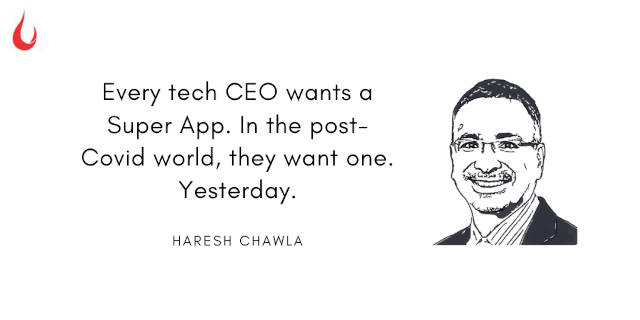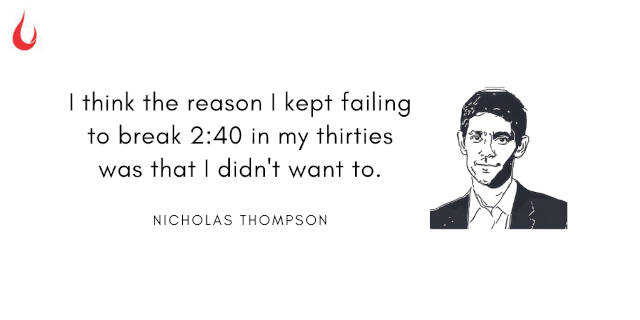[Photo by Marcus Aurelius from Pexels]
Good morning!
It’s a Monday morning. Our conversations suggest most people don’t mind a nap during the day, but feel guilty about it. Well, don’t be. Take a nap. Here’s a pointer on why and how from Extreme Productivity: Boost Your Results, Reduce Your Hours by Robert C Pozen.
Soon after lunch, I always try to take a thirty-minute nap. That’s enough to make me feel refreshed and more alert for the rest of the day. Without my nap, I get tired and less productive by late afternoon. Friends of mine like to nap later in the afternoon. The exact timing doesn’t matter; take a short nap whenever is best for you.
Why take a nap?
During the day, two biological forces fight each other. The “homeostatic propensity for sleep” encourages you to doze off based on how long you have been awake. Opposing that propensity is the circadian rhythm, which tries to keep you awake during daylight hours. However, the circadian push for wakefulness does not fully kick in until the late afternoon. Until then, your body naturally descends into a lethargic state of low energy.
There have been many studies, with randomised controlled trials, on the efficacy of napping. Their conclusions are remarkably consistent: napping significantly increases alertness and productivity on a variety of measures. According to those studies, the first ten to twenty minutes of a nap are the most beneficial, suggesting that even very short naps can help you maintain energy into the afternoon….
Unfortunately, many employees don’t think they can take a short nap without attracting the ire of their superiors. But enlightened managers should allow short naps so that their workers will be more alert later in the day. In a poll, 40 percent of workers said that they would take a nap if they were allowed to do so and a space were set aside where they could doze off. Letting subordinates nap would both endear the boss to the employees and increase their productivity in the late afternoon.
To a productivity Monday.
In this issue
- The race to build a desi Super App
- What does your brain talk about when you talk about running?
- Safe spaces
The race to build a desi Super App

In an interview with the Financial Times, N Chandrasekaran, Tata group chairman, said the Tatas plan to launch a Super App. The rationale was the group already had several consumer-facing businesses serving millions of customers; it has a large pool of coders with TCS; millions trust the Tata brand. Put them all together on a Super App. And then, it’s in business, competing with Reliance Jio, Amazon, Flipkart, Facebook, Google and every other player hoping to capture the world’s second-largest consumer market.
In his latest essay, Haresh Chawla says not so fast.
There is no doubt that a Super App is all-important.
Chawla writes: “Not everyone calls their digital offering a Super App. The taxonomy varies. But make no mistake, the Super App is that Holy Grail of the internet economy that just keeps giving. A self-perpetuating, high-velocity flywheel of consumers, transactions and services. Super Apps funnel billions of customers and transactions and become ‘operating systems’ for the daily lives of consumers like you and me. WeChat, Alipay, Gojek are the model-Super Apps that all tech giants want to emulate. In the US, Walmart, Microsoft and Oracle are locked in a battle to acquire TikTok—and that could become the foundation for a Super App strategy.”
However, finding success is where the difficulty lies.
Chawla points out: “The Indian digital consumer won’t be won over by the physical assets you own. The consumer will be won by how you organise the world for them, by the journeys you craft and the choices you create.”
Dig Deeper
+ A slideshow on the Reliance, Tata, Amazon, WeChat, AliPay, Google and Walmart ecosystems
*BONUS*
Chat with Haresh Chawla on Super Apps
Haresh Chawla will answer readers' questions on Twitter chat on Wednesday, September 2, from 3 pm to 4 pm. Make sure you tag @foundingf, @hchawlah and use the hashtag #DesiSuperApp with your questions
What does your brain talk about when you talk about running?
In Wired, its editor in chief Nicholas Thompson, who is in his 40s, writes about his training to finish his marathon in less than two-and-a-half hours. It’s something he couldn’t do even in his 30s. His story goes deep, exploring his family history and science and gives us a sense of what limits us. Here’s an interesting paragraph from the story.

“So why do runners have limits? And why do the limits differ from one person to the next? In part, it's because of physiological factors: blood oxygen levels, lactate, muscular strength, each of which has a genetic component. But there's another theory, put forward by a sports physiologist named Tim Noakes. As he puts it, in what he calls the central governor model, part of the reason we slow is because our brain is telling our body to stop because it's scared. It doesn't want you to overheat or develop a stress fracture in your shin, so it preemptively hits the brakes. If Noakes' theory is right, it implies a mind-body dilemma. We all can go faster. We just have to persuade our brains not to start the subconscious shutdown process right away. But the only thing we can use to trick our brain is our brain. Training becomes a game of hide-and-seek with oneself.”
Dig Deeper
Safe spaces

(Via WhatsApp)
Have your colleagues' ideas of offices as safe spaces changed? Have they taken to the WFH home? Head to our Slack channel and share your narratives with us there.
And if you missed previous editions of this newsletter, they’re all archived here.
Bookmark Founding Fuel’s special section on Thriving in Volatile Times. All our stories on how individuals and businesses are responding to the pandemic until now are posted there.
Warm regards,
Team Founding Fuel



